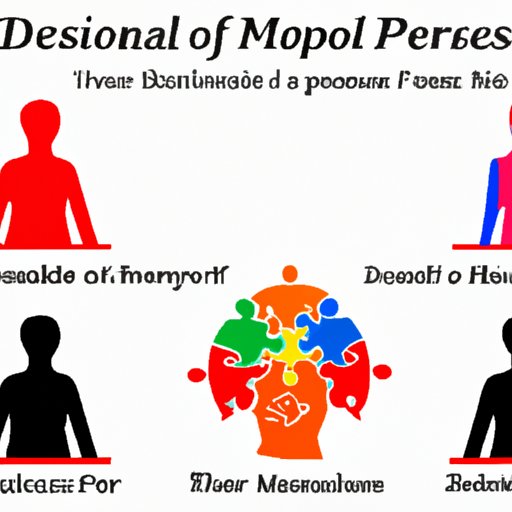I. Introduction
Narcissistic Personality Disorder (NPD) is a mental health condition that affects individuals’ ability to develop and maintain healthy relationships. Individuals with NPD display traits of grandiosity, an excessive need for admiration, and a lack of empathy towards others. This article will explore the factors that contribute to the development of NPD and help readers understand how they can overcome this problem.
II. Nature vs. Nurture: The Debate on the Roots of Narcissistic Personality Disorder
Experts have long debated the role of genetics and the environment in the development of NPD. Research has found that genetic factors may account for up to 50% of the variance in NPD traits, but environmental factors such as childhood experiences, cultural values, and peer influence also play a significant role in shaping individual traits.
III. The Psychological Trauma That Contributes to Narcissistic Personality Disorder Development
Psychological trauma is a common factor in the development of NPD. Negative experiences such as bullying, abuse, neglect, and rejection can impact one’s self-perception and behavior, leading to emotional dysregulation, dissociation, and maladaptive coping strategies.
IV. The Role of Parental Influence in the Development of Narcissistic Personality Disorder
Parental behavior can significantly impact a child’s self-concept and personality. Parents who display behaviors such as overprotection, invalidation, neglect, and excessive praise can contribute to the development of NPD. Different parenting styles such as authoritarian, permissive, or neglectful can significantly impact the development of NPD.
V. The Narcissistic Family: How Family Dynamics Contribute to Narcissistic Personality Disorder
Narcissistic families are characterized by enmeshment, triangulation, and scapegoating. These familial traits can lead to the development of NPD in individuals. Family dysfunction such as chronic conflict, emotional neglect, and abuse can also contribute to NPD.
VI. Self-Esteem Gone Rogue: The Connection Between Low Self-Esteem and Narcissistic Personality Disorder
NPD and low self-esteem have a complicated relationship. Individuals with low self-esteem may use NPD as a defense mechanism to cope with feelings of inadequacy and insecurity. Chronic feelings of inadequacy, insecurity, and shame can lead to the development of NPD.
VII. The Societal Influence on the Emergence of Narcissistic Personality Disorder
Cultural values and societal factors such as individualism, materialism, and celebrity culture can contribute to the development of NPD. Social media and technology have also played a role in changing societal norms and contributing to the emergence of NPD.
VIII. The Dark Triad: Understanding the Relationship Between Narcissistic Personality Disorder, Machiavellianism, and Psychopathy
The Dark Triad, a subset of personality traits that includes NPD, Machiavellianism, and psychopathy, has garnered attention in recent years. Understanding the similarities and differences between these traits can help individuals recognize them in themselves and others. The presence of Dark Triad traits can have significant effects on an individual’s personal and professional life.
IX. Conclusion
NPD is a complex mental health condition that can significantly impact an individual’s life. This article has outlined the various factors that contribute to NPD’s development, including psychological trauma, parenting behavior, societal factors, and self-esteem issues. If you or someone you know suspects they may have NPD, seeking professional help is the first step towards healing. Remember, NPD is treatable, and with the right support, individuals can learn to develop and maintain healthy relationships.
(Note: Is this article not meeting your expectations? Do you have knowledge or insights to share? Unlock new opportunities and expand your reach by joining our authors team. Click Registration to join us and share your expertise with our readers.)
